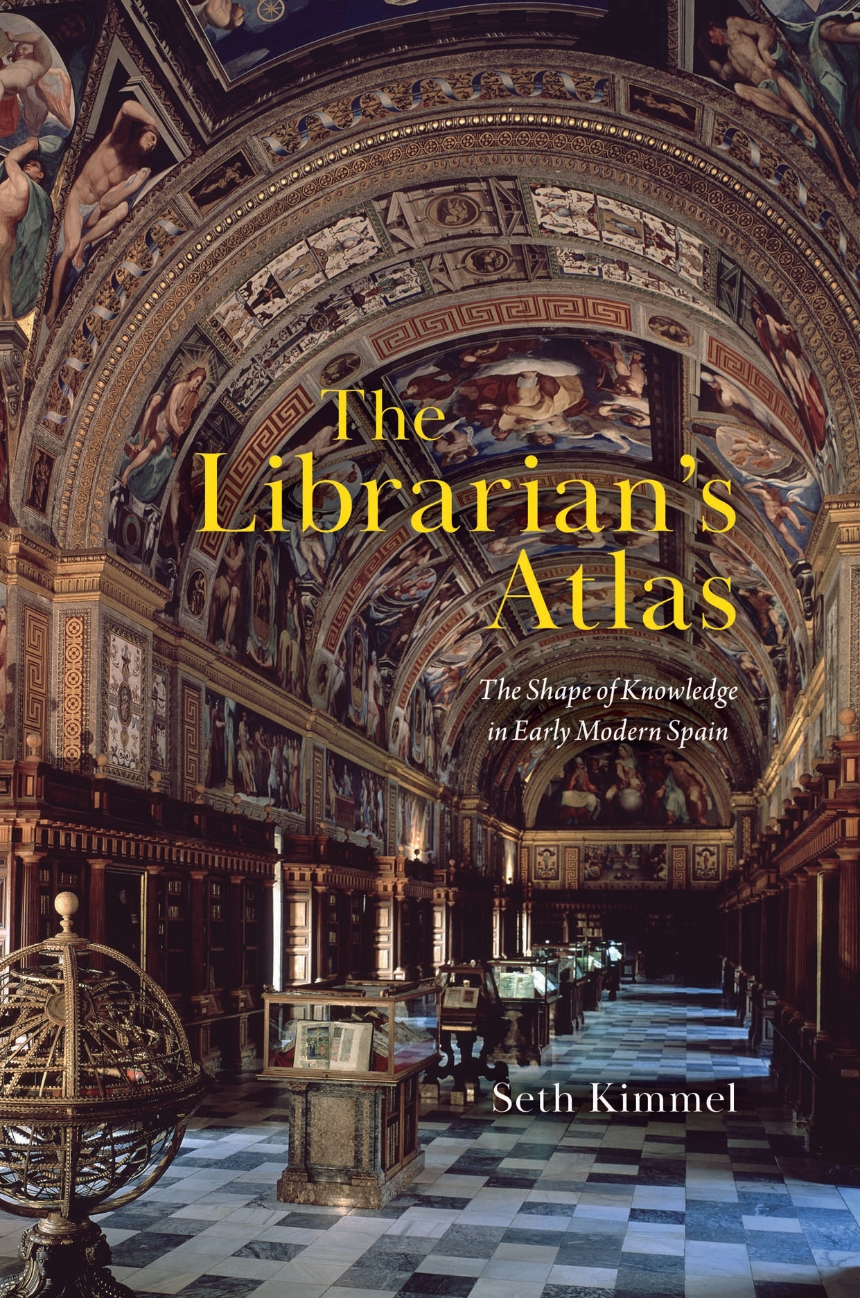The Librarian’s Atlas
The Shape of Knowledge in Early Modern Spain
9780226854472
9780226833170
9780226833187
The Librarian’s Atlas
The Shape of Knowledge in Early Modern Spain
A history of early modern libraries and the imperial desire for total knowledge.
Medieval scholars imagined the library as a microcosm of the world, but as novel early modern ways of managing information facilitated empire in both the New and Old Worlds, the world became a projection of the library. In The Librarian’s Atlas, Seth Kimmel offers a sweeping material history of how the desire to catalog books coincided in the sixteenth and seventeenth centuries with the aspiration to control territory. Through a careful study of library culture in Spain and Morocco—close readings of catalogs, marginalia, indexes, commentaries, and maps—Kimmel reveals how the booklover’s dream of a comprehensive and well-organized library shaped an expanded sense of the world itself.
Medieval scholars imagined the library as a microcosm of the world, but as novel early modern ways of managing information facilitated empire in both the New and Old Worlds, the world became a projection of the library. In The Librarian’s Atlas, Seth Kimmel offers a sweeping material history of how the desire to catalog books coincided in the sixteenth and seventeenth centuries with the aspiration to control territory. Through a careful study of library culture in Spain and Morocco—close readings of catalogs, marginalia, indexes, commentaries, and maps—Kimmel reveals how the booklover’s dream of a comprehensive and well-organized library shaped an expanded sense of the world itself.
272 pages | 20 halftones | 6 x 9 | © 2024
Guides, Manuals, and Reference: Books on Books
History: European History
Literature and Literary Criticism: Romance Languages
Reviews
Table of Contents
List of Figures
Introduction Books in Place
One Hernando Colón’s Cosmography
Two Routes of Antiquarianism: From Seville to San Lorenzo
Three A Universal Library for Philip II: Juan Páez de Castro and the Escorial’s Order of Knowledge
Four Biblioteca and Biblia: Benito Arias Montano’s Logics of Place
Five This Holy Land: Semitic Philology and Peninsular Toponymy
Six Spanish Orientalism and Saʿadī Cultures of the Catalog
Conclusion: “Libraries” and the Shape of Knowledge
Acknowledgments
Notes
Bibliography
Index
Introduction Books in Place
One Hernando Colón’s Cosmography
Two Routes of Antiquarianism: From Seville to San Lorenzo
Three A Universal Library for Philip II: Juan Páez de Castro and the Escorial’s Order of Knowledge
Four Biblioteca and Biblia: Benito Arias Montano’s Logics of Place
Five This Holy Land: Semitic Philology and Peninsular Toponymy
Six Spanish Orientalism and Saʿadī Cultures of the Catalog
Conclusion: “Libraries” and the Shape of Knowledge
Acknowledgments
Notes
Bibliography
Index
